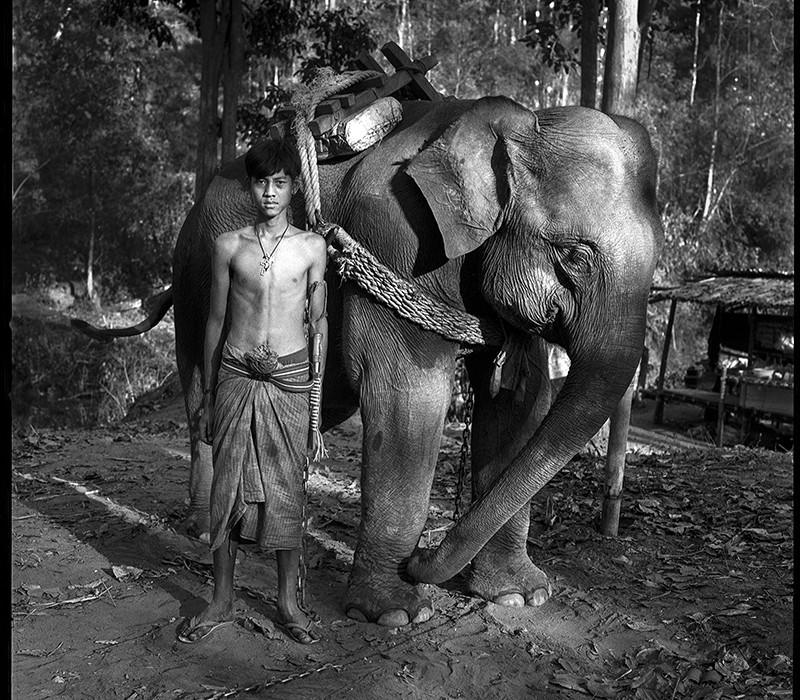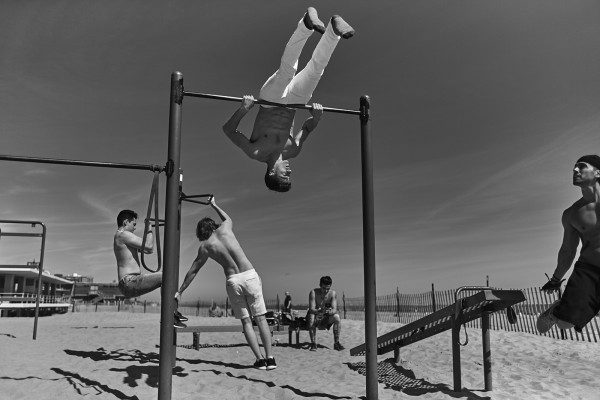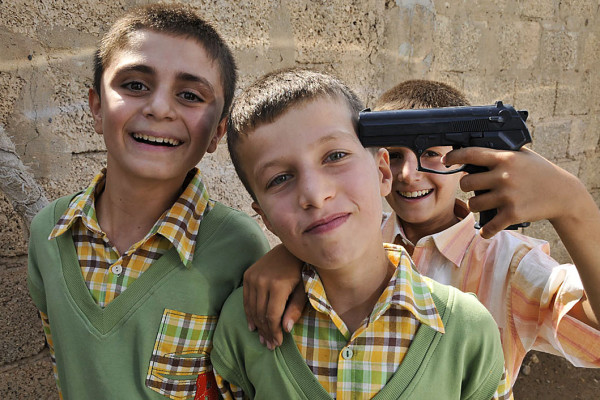1. I think the analog-digital discussion never made sense, because they really are different tools. We do not need to exclude one or exclude the other. There was a time in history, the early years of digital, wherein the analog has been on the verge of disappearing completely. Now there is a resurgence around the analog issue because we have realized that it is simply another way of working. Just whether you have Diesel car or a Petrol car. Digital saves us time, money and saving the environment of not having to throw chemicals, of not having to throw paper in the way we did before. It is simply amazing.
2. When the first digital cameras arrived, they did it with one and a half megapixel and they costed a lot. That made no sense to me. They had also huge batteries. It was all very absurd to me. It was the denied, the thought that digital would never have had a negative quality. Now obviously it’s more than surpassed. At first it affected me professionally and emotionally, because I felt that digital was not photography, but this was a bullshit that I’ve noticed over time. Professionally it affected me because, basically with what I was paid in Spain, which was a pittance and currently remains the same misery that 20 years ago, because most companies still pay exactly the same amount as 20 years ago, I could not afford buying a digital camera.
3. I like shooting photos with my mobile phone and I believe that, personally, it has helped me to take more pictures of my day to day and be continually seeing more photos. I think that the revolution for photography, more than the smartphone, has been the social network Instagram. I see more people taking pictures as ever. Also for me, Instagram gives you the possibility to see pictures of people who in principle is “nobody”, but many of them have an impressive talent and following them allows me not seeing the usual photographers.
4. Nowadays, if happens something like the tsunami in Japan we have a number of videos and pictures we had never had, because everyone has a smartphone and is at the moment recording and taking pictures and posting them on web, in print, on television… But if there is a professional there at the same time, probably he will sell its images. The problem is about the newspaper, wether it is not serious enough and buy the pictures to fans of the street made with their mobile phone and not the professional ones. I remember a cover of “El País” during the bombing of Barajas, made with a mobile phone. As there were no photojournalists, the newspaper bought the photography from an amateur, but I had also bought the photo. If there had been a proffesional photographer, the newspaper would not have bought the amateur, for sure, unless the amateur would have been better, although made with a mobile phone.
5. For me the real danger of social networks is that anyone can transmit information, without having any preparation for transmitting information. Often the most important thing is that people are not aware of the power of information. A dramatic case happened in Bangladesh last year. Bangladesh had entered smartphones and social networks. There had been some unrest in Myanmar, where Buddhists killed Muslims for a long time. A child tweeted about Buddhists have murdered and raped a Muslim girl. The result was 200 dead and a lot of houses on fire because of a tweet. This is the worst case I know, but it has happened similar things on several occasions.
6. I love social networks and I think that they help me a lot in my work, to promote myself. 10 or 15 years ago, for a photographer like me, who was born in one of the smaller islands of this country, in a neighborhood with 60 inhabitants, it was impossible to let you know. Make you known nowadays is very easy: you start putting your photos on social networks, you get a good promotion plan and you can get it. It was virtually impossible before. I know what this means for a profession like ours, for someone who is dedicated to the image, but we must use it and we also need to know how to read social networks.
7. There are photographers who definitely are taking much advantage of social networks, devoting a reasonable time and not spending all day glued to the phone or computer, but I think we have much to learn and that in schools of photography, a compulsory subject should be behavior and how to act in social networks, because it is an amazing promotional tool. Maybe in 10 years Facebook will not exist, but there will be another social network to replace it. This is not a fad, is here to stay.
8. Having my pictures stolen was something that caused me a lot of paranoia when I started using Internet. Then I reached a point where I do not care. I already put my security measures to avoid people downloading my images. They can make a screenshot and I don´t use big watermarks or anything like that, but if I encounter someone using my photos in a publication I send him an email with the invoice. If they do not answer me or answer me badly, I stick a complaint and not complicate my life too much, because I think it is not worth wasting time on being obsessed with it.
9. There is a feeling in the street photographers that agency photographers are the best ones. Undoubtedly, the agency work, not the photographer, because there are wonderful photographers working for daily reporting agencies, for me it is the simplest and lifeless work that there at all layers of photojournalism, by far. They are best known photographers, because if you’re in AP and your boss likes you, he begins to issue you and take you to important events. If you work in Madrid and he take you to Madrid-Barça matches and take you where comes the Pope and great personalities, your job is going to be promoted. Another photojournalist who is working in a newspaper in Aragon, gives many turns, but only is going to be seen by the people of Aragon.
10. In relation to the crisis in the media, I think that the model they must follow, if they want to continue selling paper, which I think does not make sense, is putting a very basic, explicit and clear information on Internet today and tomorrow, with an entire day to develop a report, create a report and sell it on paper. What they can not do is selling exactly the same and pretend us to go to the kiosk to buy it, because anyones does that. There is a sector of the population above 60 years that maybe does not handle Internet and still buy paper, but those people are going to die. They have to give a real alternative.
Arturo Rodriguez






Blog kuchiFm | Fotoperiodismo 3.0: una visión actual del fotoperiodismo en España
[…] “Para mí el peligro real de las redes sociales es que cualquiera puede transmitir la información, pero ese cualquiera no tiene la preparación para transmitir la información y muchas veces lo más importante es que no es consciente del poder que tiene la información.” Arturo Rodríguez (WEB) (Lee más…) […]